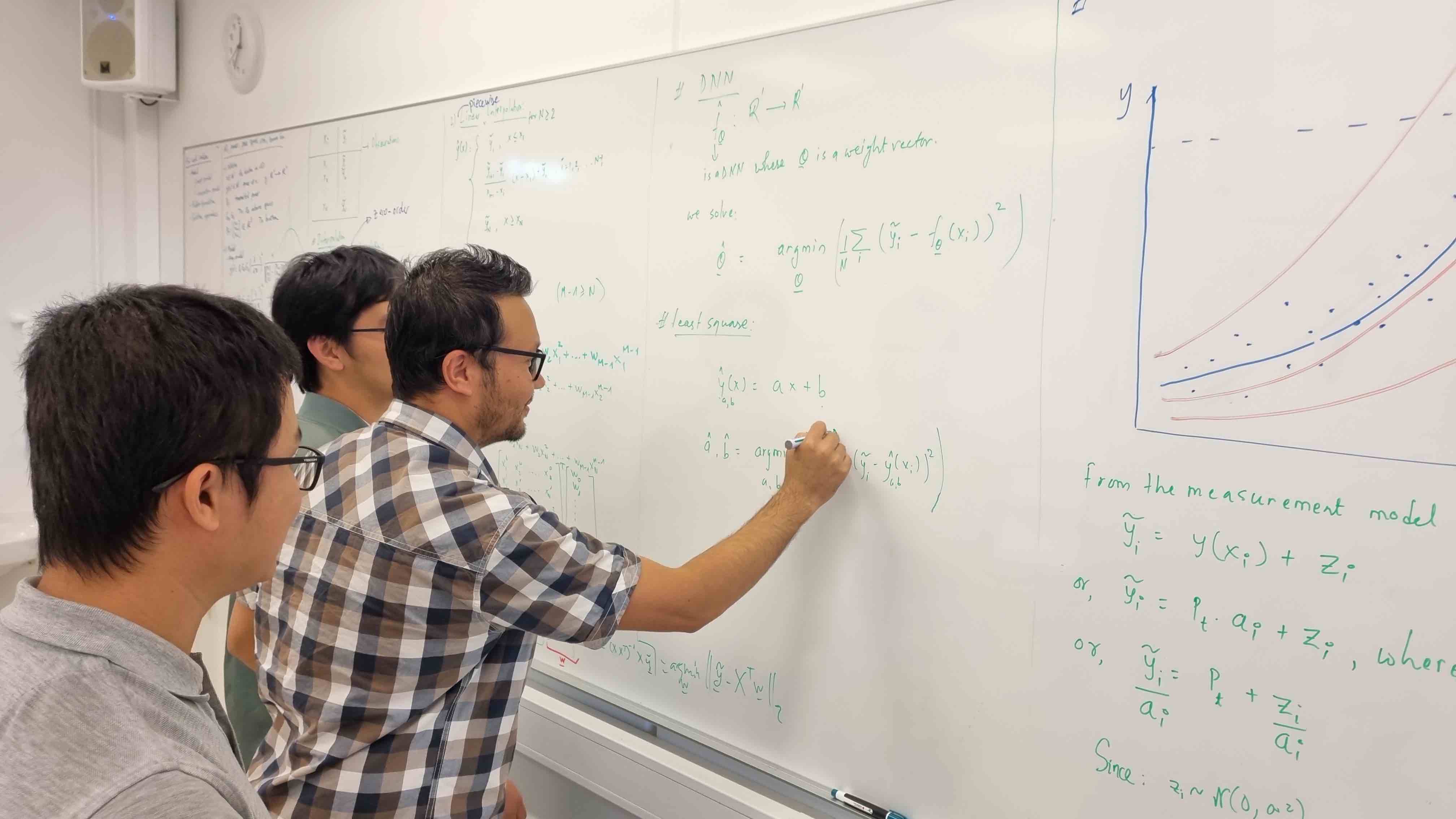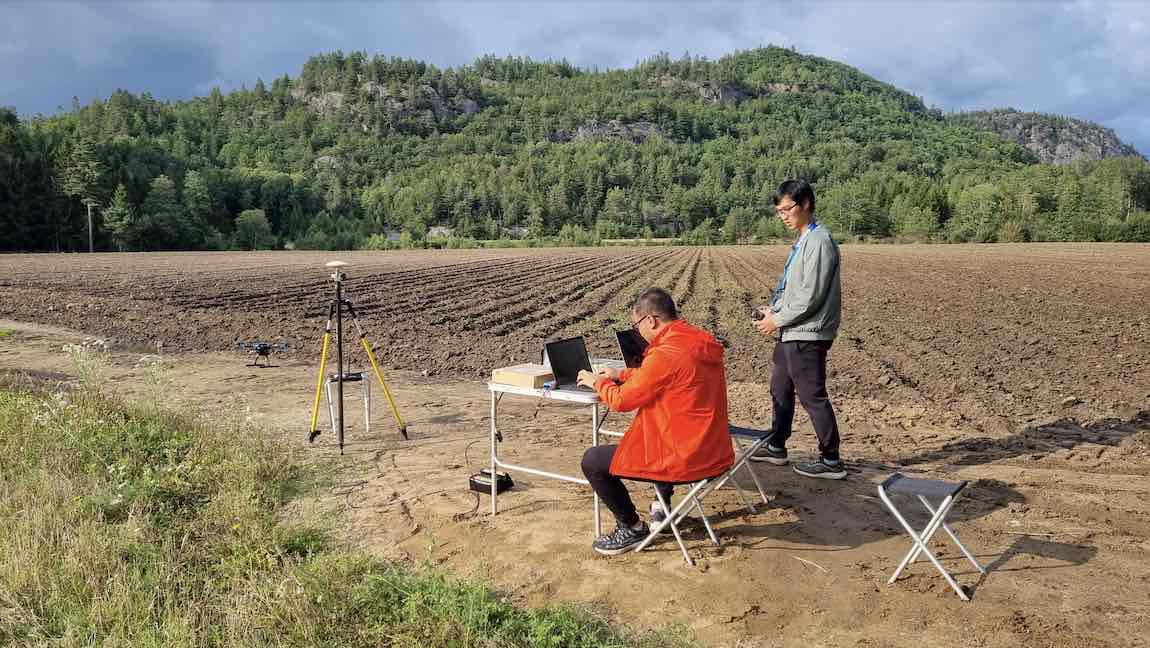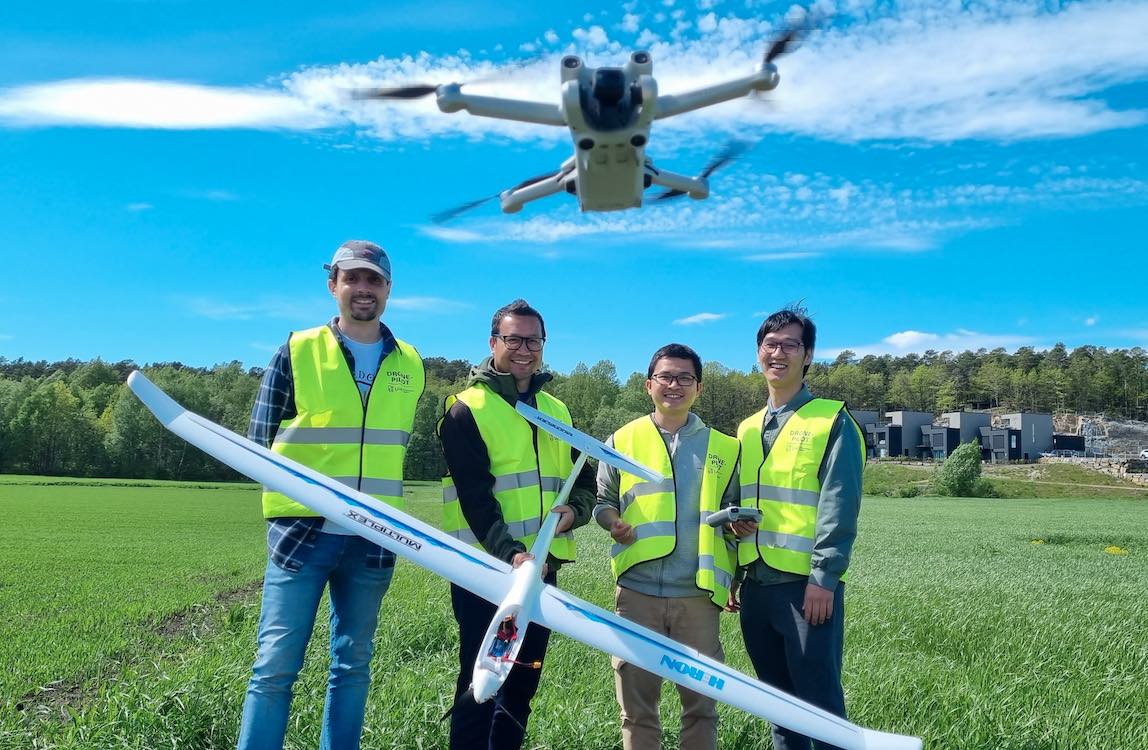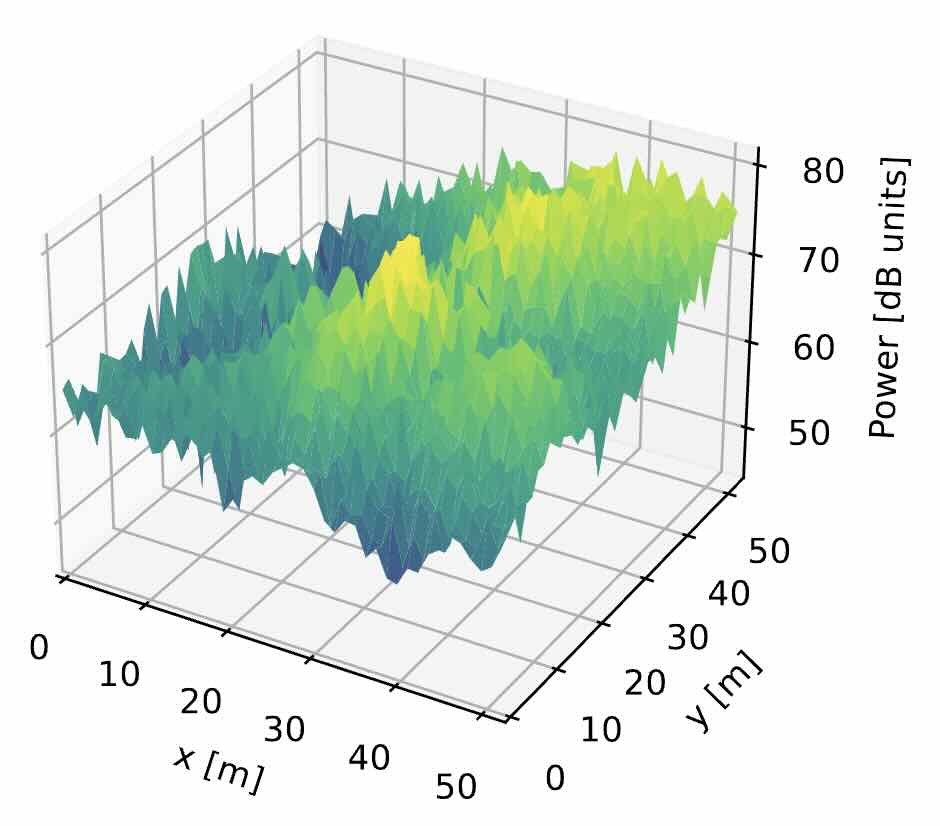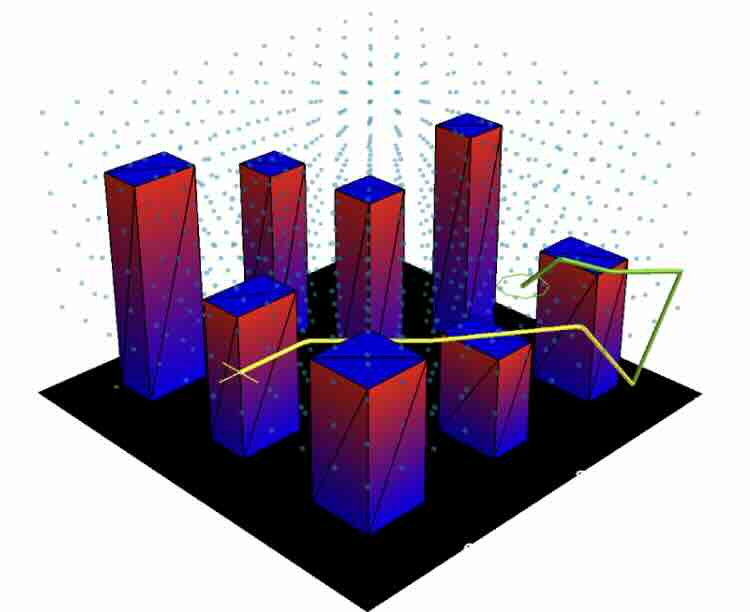The Lab
The Autonomous Systems Laboratory (ASL) is a research group within the Center for Integrated Emergency Management at the University of Agder, Norway. Its main objective is to advance the research front in the area of autonomous systems by developing algorithms and methodologies that enable decision-making in (possibly aerial) robotic, cyberphysical, and embedded systems without human supervision.
You can watch our video presentation here:
Strong emphasis is placed on radio cartography (see also radiomaps.org), where this group has pioneered both the theoretical and empirical aspects of the problem. The group has also developed a large number of algorithms in this context.
More generally, our group conducts both fundamental and applied research. On the one hand, we pursue fundamental contributions in the following areas:
- machine learning
- artificial intelligence
- wireless communications
- signal processing
- control theory
- robotics
On the application side, we target specific goals in the context of mobile communications and information processing for emergency response. Specifically, note that emergency response operations are often impaired by lack of visibility, extreme temperatures or weather, remoteness of the operation site, and other conditions that increase the risk for emergency responders and compromise the success of the mission. In this context, our group is concerned with the application and development of information and communication technologies that alleviate the impact of the aforementioned challenges through enhanced communication and situational awareness capabilities.
To achieve the first of these objectives, the focus is on devising artificial intelligence and optimization algorithms as well as hardware architectures that enable the utilization of autonomous mobile communication infrastructure, such as fleets of unmanned aerial vehicles (UAVs) with on-board base stations. The latter can be swiftly deployed on-site, even before responders arrive, and can provide high-throughput data links to the control center, which can be used to exchange video feeds and sensing information.
The second objective comprises a set of artificial intelligence and signal processing techniques for collecting on-field sensor data, communicate it to the control center, and fuse the available heterogeneous sources of information to achieve seamless scene understanding with minimum human intervention. The aforementioned mobile infrastructure will also be leveraged to this end, both for data collection and communication purposes.
News
- Jan. 21, 2026. Our journal paper "Probabilistic Roadmaps for Aerial Relay Path Planning" has been accepted at the IEEE Transactions on Communications. The key novelty in this work is a new algorithm for planning the path of two UAVs that provide connectivity to a moving user on the ground. See examples of trajectories in the video below.
- Dec. 8, 2025. Our paper "Bayesian Radio Map Estimation: Fundamentals and Implementation via Diffusion Models" has been presented at the "2025 IEEE Globecom Workshop on Radio Maps for Communications and Sensing, Taipei, Taiwan.
- Sep. 11, 2025. Our paper "Bayesian Radio Map Estimation: Fundamentals and Implementation via Diffusion Models" has been accepted at the "2025 IEEE Globecom Workshop on Radio Maps for Communications and Sensing, Taipei, Taiwan, Dec. 2025.
- Aug. 7, 2025. Check out our new submission "Bayesian Radio Map Estimation: Fundamentals and Implementation via Diffusion Models". Diffusion models are the basis of the state-of-the-art algorithms for image generation.
-
Jul. 1, 2025. Daniel Romero delivered a lecture on transformers at the 11th Spain Workshop on Signal Processing, Information Theory and Communications (SIC’25).
Transformers are the deep neural networks that power chatbots such as ChatGPT.
The slides can be found here.
- Jun. 11, 2025. Our paper "Spatial Transformers for Radio Map Estimation" was presented at the IEEE International Conference on Communications (ICC) 2025, Montreal, Canada.
- May 19, 2025. Prasenjit Dhara has presented the paper "Ethical and Safety Concerns for UAV-Assisted Data Collection for Disaster Management" by himself and Prof. Radianti at ISCRAM 2025.
- May 18, 2025. Prasenjit Dhara and Jaziar Radianti held a workshop at ISCRAM 2025 with title "Techno-ethics Perspective for UAV-assisted Data Collection".
- Apr. 29, 2025. Daniel Romero has been promoted to Full Professor.
- Feb. 1, 2025. Daniel Romero has been elevated to IEEE Senior Member.
-
Jan. 18, 2025. Our paper "Spatial Transformers for Radio Map Estimation" will be presented at the IEEE International Conference on Communications (ICC), Montreal, Canada. This work applies transformers (the technology behind contemporary chatbots such as ChatGPT) to the radio map estimation problem, achieving state-of-the-art performance with a fraction of the computational cost of existing methods.
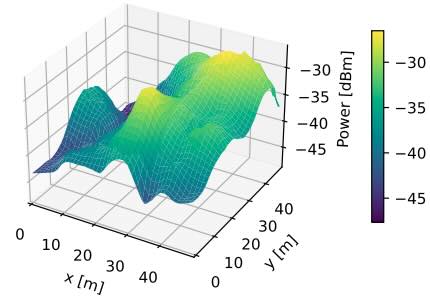

- Nov. 1, 2024. Check out our new submission "Spatial Transformers for Radio Map Estimation". Attention-based machine learning is not only useful in NLP. It also sets the state of the art in radio map estimation!
-
Sep. 26, 2024.
Raju Shrestha successfully defended his doctoral dissertation. Congrats, Raju!
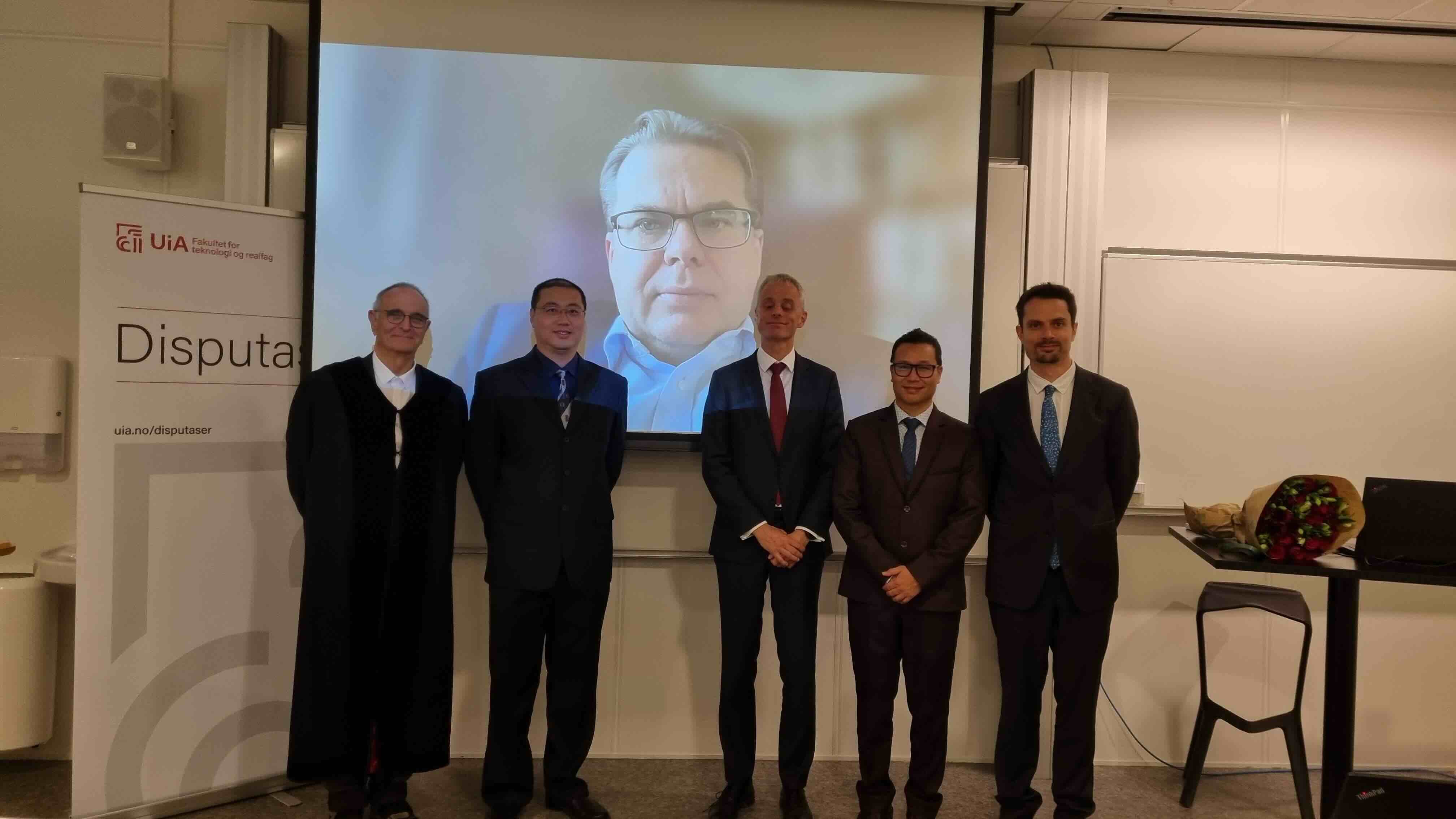
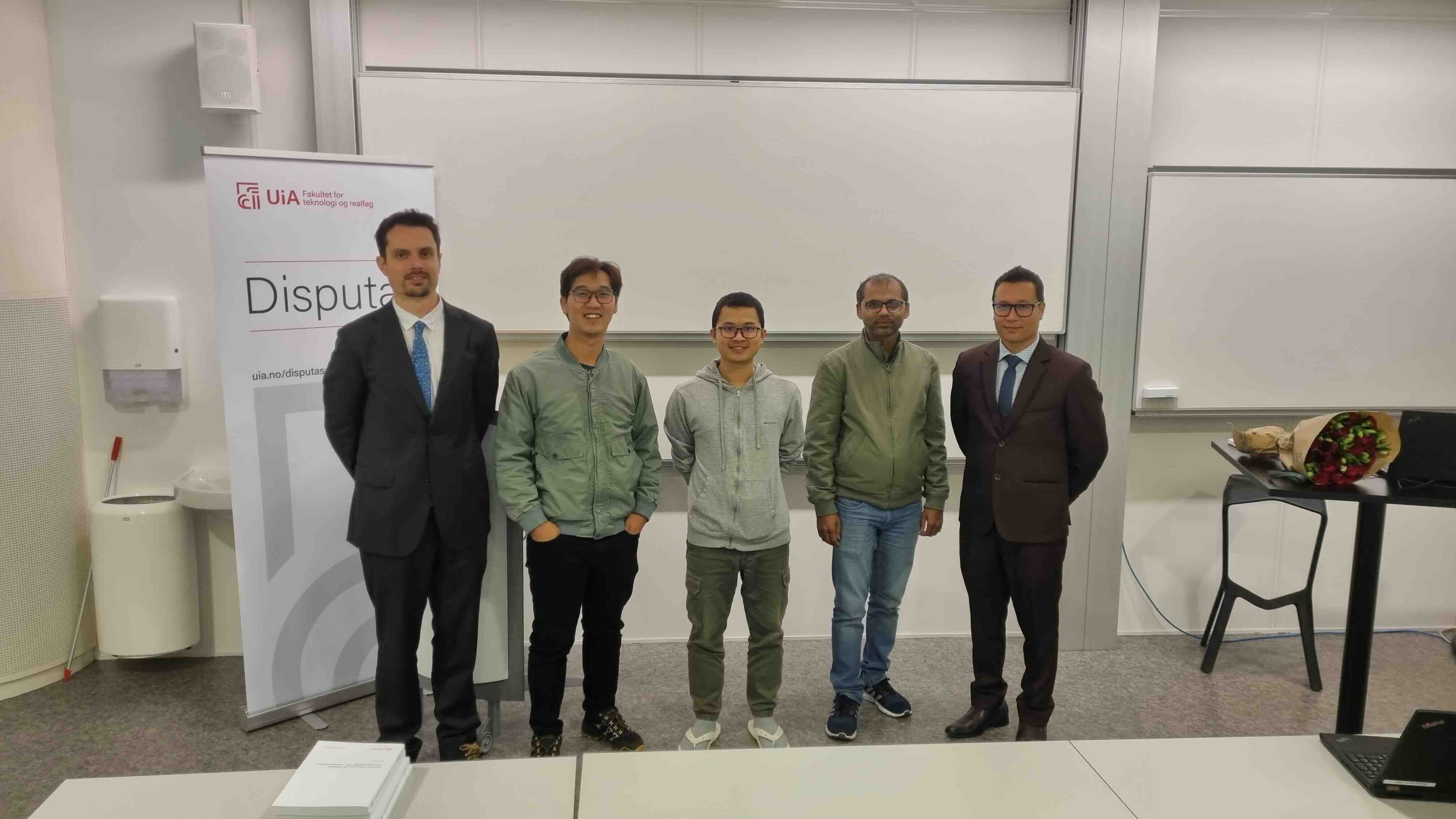
- Jul. 24, 2024. D. Romero delivered a talk at the High End Workshop Karyashala, NIT Raipur, Chhattisgarh, India.
- May. 13, 2024. Our journal paper Theoretical Analysis of the Radio Map Estimation Problem has been accepted at the IEEE Transactions on Wireless Communications.
- May. 3, 2024. Check out our new journal submission "Probabilistic Roadmaps for Aerial Relay Path Planning". The key novelty in this work is a new algorithm for planning the path of two UAVs that provide connectivity to a moving user on the ground. See examples of trajectories in the video below.
- Apr. 4, 2024. Our paper "Analytical performance bounds for radio map estimation" will be presented at the IEEE Vehicular Technology Conference (VTC), Spring, Singapore.
- Mar. 21, 2024. Our journal paper "Aerial base station placement via propagation radio maps" has been accepted at the IEEE Transactions on Communications.
- Mar. 14, 2024. Our paper "Radio Maps for Beam Alignment in mmWave Communications with Location Uncertainty" will be presented at the IEEE Vehicular Technology Conference (VTC), Spring, Singapore.
- Mar. 5, 2024. Our paper "Spoofing Detection in the Physical Layer with Graph Neural Networks" will be presented at the IEEE Vehicular Technology Conference (VTC), Spring, Singapore.
- Jan. 10, 2024. Check our new submission "Radio Map Estimation: Empirical Validation and Analysis". To the best of our knowledge, this is the first large-scale study of radio map estimators with real data. Here, we developed and used a system for collecting a large dataset of radio measurements using UAVs.
- Dec. 23, 2024. Our paper "Spoofing attack detection in the physical layer with robustness to user movement" will be presented at the IEEE Wireless Communications and Networking Conference (WCNC), Dubai, UAE.
- Nov. 10, 2023. Check our new conference submission "Analytical Performance Bounds for Radio Map Estimation" and the corresponding journal paper Theoretical Analysis of the Radio Map Estimation Problem. This work, which is a collaboration with the University of California, San Diego, constitutes the first theoretical analysis of the radio map estimation problem. It characterizes the spatial variability of radio maps and upper bounds the performance of some radio map estimators.
- Nov. 10, 2023. Check our new submission "Spoofing Detection in the Physical Layer with Graph Neural Networks". Here, a GNN is used to detect spoofing attacks by learning the patterns of RSS changes over time corresponding to the activity of the legitimate user and attacker.
- Oct. 20, 2023. Our paper "Probabilistic Roadmaps for Aerial Relay Path Planning" will be presented at the IEEE Global Communications Conference (Globecom), in Kuala Lumpur, Malaysia.
- Oct. 18, 2023. Our paper "Radio Map Estimation in the Real-World: Empirical Validation and Analysis" will be presented at the IEEE Conference on Antenna Measurements and Applications, in Genoa, Italy. To the best of our knowledge, this is the first empirical analysis of the radio map estimation problem.
- Oct. 18, 2023. Check our new submission "Spoofing Attack Detection in the Physical Layer with Robustness to User Movement". To the best of our knowledge, this is the first work to be able to satisfactorily detect spoofing attacks in the physical layer even when users move.
- Oct. 18, 2023. Mr. Prasenjit Dhara will be joining our lab as a PhD student. Welcome!
- Jan. 22, 2023. Check our new submission "Aerial Base Station Placement via Propagation Radio Maps".
- Dec. 23, 2022. We are pleased to announce the opening of a PhD position in our AirBonnet project. Deadline: Jan. 31, 2023.
- Nov. 8, 2022. Check our new submission "Spoofing Attack Detection in the Physical Layer with Commutative Neural Networks".
- Aug. 11, 2022. Our article "Radio Map Estimation: A Data-Driven Approach to Spectrum Cartography " has been accepted at the IEEE Signal Processing Magazine.
- Jul. 31, 2022. Our paper "Spectrum Surveying: Active Radio Map Estimation with Autonomous UAVs" has been accepted at the IEEE Transactions on Wireless Communications.
- May. 5, 2022. Our paper "Implicit Channel Charting with Application to UAV-aided Localization" has been accepted at the IEEE International Workshop on Signal Processing Advances in Wireless Communications, Oulu, Finland, July 4-6, 2022.
- Apr. 21, 2022. We are pleased to announce the opening of a PhD position in our project AirBonnet, which deals with providing wireless connectivity in crowded or remote areas as well as in emergency situations. Deadline: May 23.
- Apr. 20, 2022. Our paper "Aerial Base Station Placement Leveraging Radio Tomographic Maps" will be presented at the IEEE International Conference on Acoustics, Speech, and Signal Processing (ICASSP 2022), Singapore.
- Apr. 20, 2022. Our paper "Fast Graph Filters for Decentralized Subspace Projection" will be presented at the IEEE International Conference on Acoustics, Speech, and Signal Processing (ICASSP 2022), Singapore.
- Mar. 19, 2022. Check out our new submission "Implicit Channel Charting with Application to UAV-aided Localization".
- Mar. 3, 2022. Our paper "Aerial Base Station Placement: A Tutorial Introduction" has been accepted at the IEEE Communications Magazine.
- Feb. 1, 2022. Next Feb. 15, Daniel will be joining the Dept. of ECE of the University of California, San Diego, as a visiting scholar.
- Feb. 1, 2022. Check out our new submission "Radio Map Estimation: A Data-Driven Approach to Spectrum Cartography ". This is a collaboration with Prof. Seung-Jun Kim from the University of Maryland, Baltimore County, and has been submitted to the IEEE Signal Processing Magazine.
- Jan. 22, 2022. Our paper "Aerial Base Station Placement Leveraging Radio Tomographic Maps" has been accepted at the IEEE International Conference on Acoustics, Speech, and Signal Processing, to be held in May 2022 in Singapore.
- Jan. 19, 2022. Our paper " Robust Sum-Rate Maximization for Underlay Device-to-Device Communications on Multiple Channels" has been accepted for publication in the IEEE Transactions on Vehicular Technology.
- Jan. 12, 2022. Our paper "Spectrum surveying: active radio map estimation with autonomous UAVs" has been submitted to the IEEE Transactions on Wireless Communications.
- Oct. 5, 2021. Check out our new submission "Aerial Base Station Placement: A Gentle Introduction".
- Aug. 14, 2021. Our paper "Deep Completion Autoencoders for Radio Map Estimation" has been accepted for publication in the IEEE Transactions on Wireless Communications.

